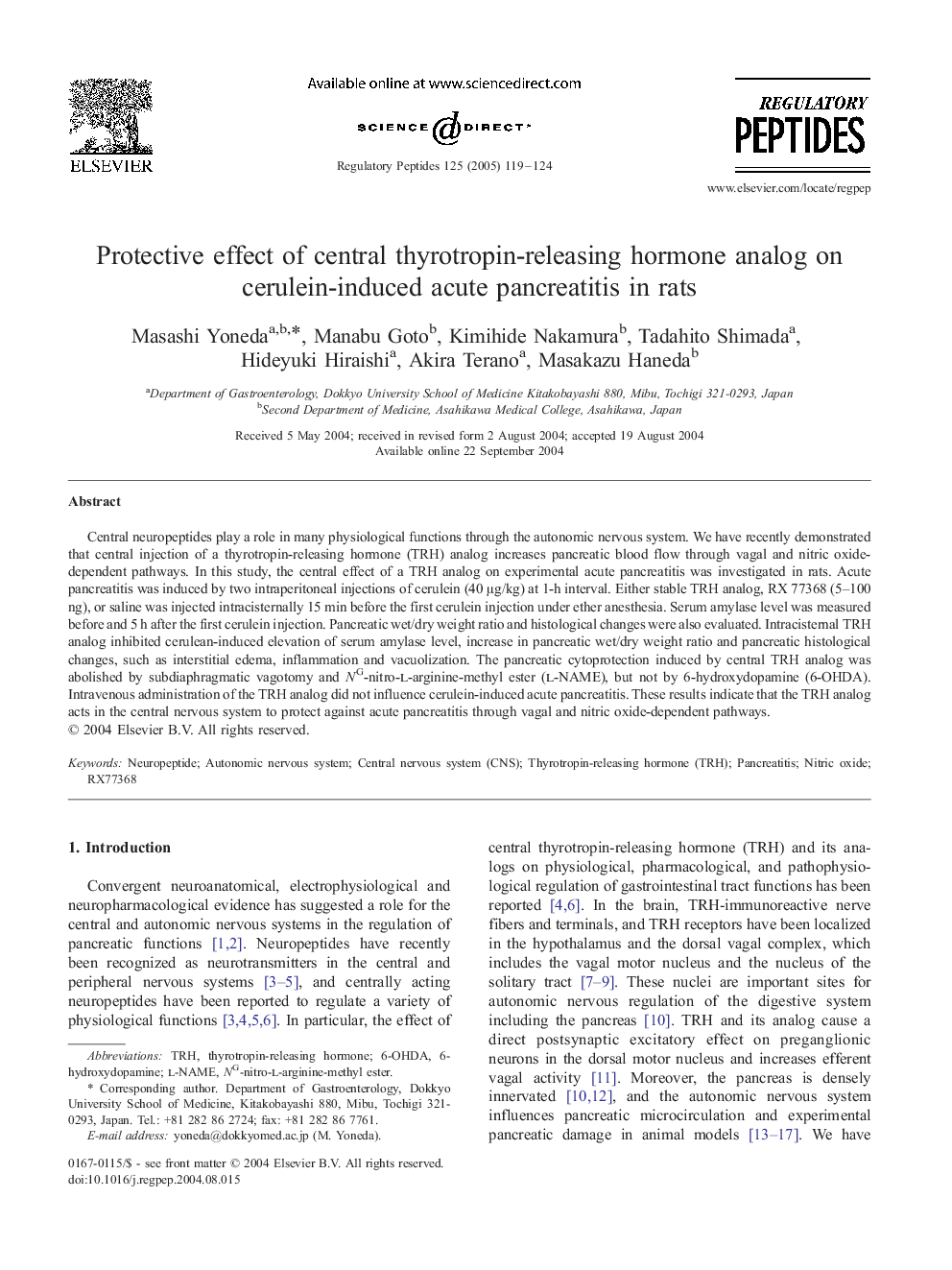| Article ID | Journal | Published Year | Pages | File Type |
|---|---|---|---|---|
| 9894509 | Regulatory Peptides | 2005 | 6 Pages |
Abstract
Central neuropeptides play a role in many physiological functions through the autonomic nervous system. We have recently demonstrated that central injection of a thyrotropin-releasing hormone (TRH) analog increases pancreatic blood flow through vagal and nitric oxide-dependent pathways. In this study, the central effect of a TRH analog on experimental acute pancreatitis was investigated in rats. Acute pancreatitis was induced by two intraperitoneal injections of cerulein (40 μg/kg) at 1-h interval. Either stable TRH analog, RX 77368 (5-100 ng), or saline was injected intracisternally 15 min before the first cerulein injection under ether anesthesia. Serum amylase level was measured before and 5 h after the first cerulein injection. Pancreatic wet/dry weight ratio and histological changes were also evaluated. Intracisternal TRH analog inhibited cerulean-induced elevation of serum amylase level, increase in pancreatic wet/dry weight ratio and pancreatic histological changes, such as interstitial edema, inflammation and vacuolization. The pancreatic cytoprotection induced by central TRH analog was abolished by subdiaphragmatic vagotomy and NG-nitro-l-arginine-methyl ester (l-NAME), but not by 6-hydroxydopamine (6-OHDA). Intravenous administration of the TRH analog did not influence cerulein-induced acute pancreatitis. These results indicate that the TRH analog acts in the central nervous system to protect against acute pancreatitis through vagal and nitric oxide-dependent pathways.
Keywords
Related Topics
Life Sciences
Biochemistry, Genetics and Molecular Biology
Biochemistry
Authors
Masashi Yoneda, Manabu Goto, Kimihide Nakamura, Tadahito Shimada, Hideyuki Hiraishi, Akira Terano, Masakazu Haneda,
